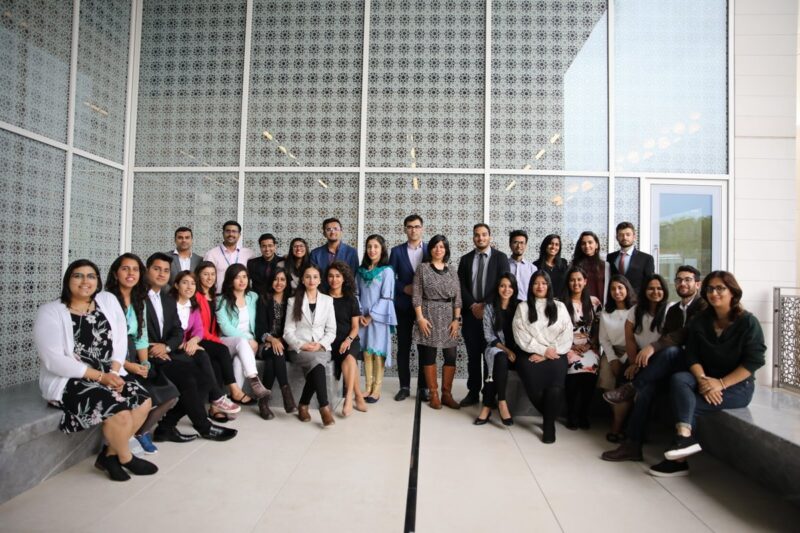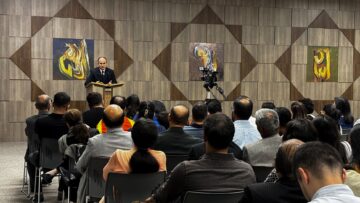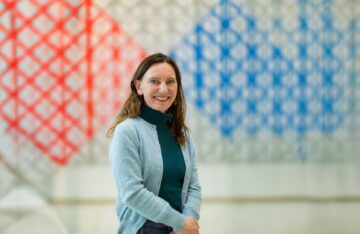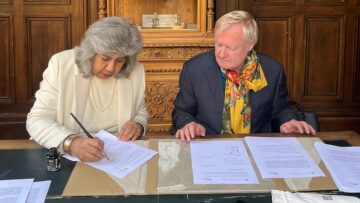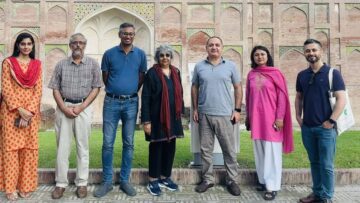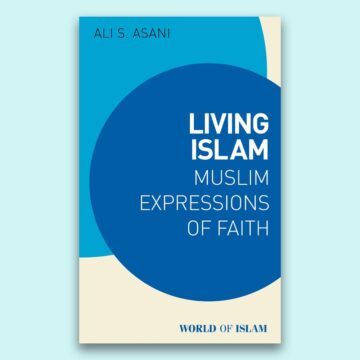The beginning of a new academic year is always an exciting time in the IIS calendar, particularly when our new intake of students arrive. We recently welcomed new students onto the Secondary Teacher Education Programme (STEP) and the Graduate Programme in Islamic Studies and Humanities (GPISH) into our vibrant learning community. Arriving from across the globe, 29 students joined STEP from Canada, India, Pakistan, Russia, Tajikistan and the USA, whilst 11 students from Canada, India, Pakistan, Tajikistan and the USA began GPISH.
Dr Laila Halani, Head of the Department of Graduate Studies, described what the incoming students can look forward to over the next two years:
The next two years at the IIS will be an intellectually stimulating and humbling journey which will open up new ways of thinking for our students on STEP and GPISH. The students will benefit from a ‘Connected Curriculum’ approach where faculty, involved in the construction of new knowledge, will make students co-constructionists by engaging students in their research through their teaching
The Head of Graduate Studies also reminded us that:
The validation of the MA for both programmes by SOAS University of London, the only higher education institution in Europe specialising in the study of Asia, Africa and the Near and Middle East, recognises IIS’ own invaluable contributions in the field of Islamic Studies and cements a long standing relationship based on shared ethos and research interests.
STEP prepares students to deliver the Institute’s Secondary Curriculum, which has been specifically developed for the religious and humanities education of Ismaili Muslim children worldwide. Graduates of STEP receive an MA in Muslim Societies and Civilisations, taught at IIS and awarded by SOAS University of London and a PGDip in Teaching and Reflective Practice, awarded by University College London. Having trained as secondary-level teachers, the graduates will go on to take up teaching positions with the Ismaili Tariqah and Religious Education Boards (ITREBs) in their home countries.
New student Altaf Somani, from India, described his aspirations of studying at the IIS, and his first experiences as a STEP student:
It has always been my ambition to serve the Imam of the Time and the Jamat. Also, it has been my endeavour to take secondary education beyond religious education, to help students develop a critical understanding of their faith and the contemporary world. So, what would be better than shaping the future of our next generation by being a STEP teacher? It is inexplicable how great a feeling it is to be studying at the Aga Khan Centre. , It is most beautifully built, and holds an intellectual institute with people of many different backgrounds and disciplines. One gets to experience pluralism in its real essence here.
GPISH is a three-year graduate programme, the first two years can act as preparation for a research degree or a stepping stone to a variety of career opportunities. Past graduates have pursued careers in a wide range of fields, including academia, media, education and development. The new GPISH students will be the first cohort to have the first two years of the programme as an MA accredited by SOAS University of London. GPISH continues to be a cutting-edge programme in the field of Islamic Studies and Humanities while remaining true to the original vision that guided its launch over 25 years ago. Speaking about her motivation for joining GPISH, new student Anum Ameen Hossain, from the USA, remarked:
When initially accepted into GPISH, I was extremely excited about the potential career opportunities post graduating as being an AKDN employee is an aspiration that I have eagerly been working towards for some time now. I was also enthusiastic about being able to explore London and to live on a new continent. Over the next few years I aspire to develop myself spiritually and professionally and contribute to the wellbeing of my community. Specifically, I want to decide what field I’d like to work in, and potentially pursue a PhD.
During their first few weeks at the IIS new students have undertaken Arabic or Persian language courses, to either introduce them to the language or help them to improve their existing proficiency. As part of their introduction to the UK, new students visited the UNESCO World Heritage Site of Canterbury Cathedral and its medieval town centre. The group also went to Leeds Castle, where they had the opportunity to explore the castle and its extensive grounds.
Applications for GPISH are currently open until 10 January 2020.

